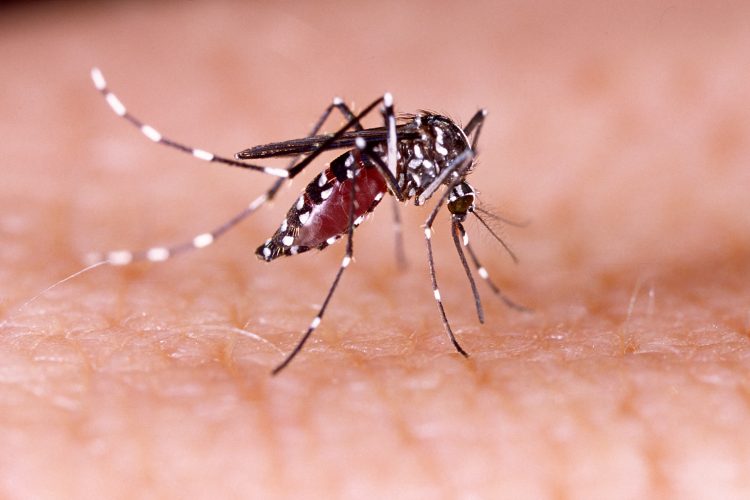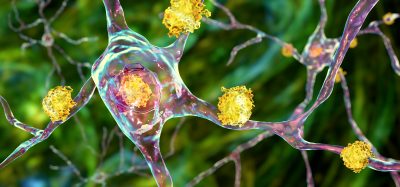Experimental drug reduces zika virus replication and protects developing mouse pups
Posted: 21 July 2020 | Hannah Balfour (Drug Target Review) | No comments yet
The novel aryl hydrocarbon receptor (AHR) inhibiting drug slowed zika virus replication and prevented mouse foetuses malforming in infected mothers.


Researchers have discovered that inhibiting the aryl hydrocarbon receptor (AHR), a protein with roles in regulating immunity, stem cell maintenance and cellular differentiation, enables the immune system to combat zika virus more effectively.
The oral AHR inhibitor was able to prevent the development of microcephaly and other malformations in the foetuses of mice that were infected while pregnant.
“In the experiments, we used an experimental drug that inhibits AHR and observed a decrease in replication of both zika virus and dengue virus. We now plan to test the effectiveness of the therapy against the novel coronavirus,” said Jean Pierre Peron, a professor at the University of São Paulo’s Biomedical Sciences Institute (ICB-USP), Brazil, and co-principal investigator for the project.
The experimental mouse model had previously been used by Peron’s group to prove a causal link between zika virus and microcephaly, when female mice of the SJL strain were infected with zika between the tenth and twelfth day of pregnancy. The SJL strain is more susceptible to zika virus infections than other laboratory mice models. When the pups were born, the researchers found a significant reduction in cortical layer thickness, as well as alterations in the number and morphology of cortical and other brain cells. They also found that the virus replicated far more rapidly in placenta and in the pups’ brains than in other organs.
Peron said that this time they repeated the experiment but with a difference: “Shortly before we infected the pregnant females with zika, we began orally administering the AHR inhibitor. The treatment continued until the end of the gestational period. The pups had normal brains in terms of size and weight, and a far lower viral load than the non-treated control group. Viral load was almost undetectable in both the placenta and the central nervous system. In addition, histopathological analysis showed that there was no reduction in cortical layer thickness and that the number of nervous system cells killed by the virus was much smaller.”
According to Peron, no adverse effects were observed in the mice treated with the AHR inhibitor, but before the treatment is tested in human volunteers the experiment must be replicated in monkeys.
Why target AHR?
The AHR inhibitors were designed and developed in the lab of Francisco Quintana, a professor of neurology at Harvard Medical School in the US, and another co-principal investigator. He had discovered that interferons controlled the activation of AHR and due to their central role in the immune response, suggested AHR may be involved in viruses such as zika supressing the immune system. “We designed anti-AHR therapies and developed nanoparticles and inhibitors for use in the experiments,” Quintana said.
Tests performed in the laboratory and in animals confirmed that viruses activate AHR to suppress the host’s immune response. Their experiments lead the researchers to propose that this may occur when a pathogen infects the liver, triggering release of the tryptophan metabolite kynurenine.
“This metabolite activates AHR, which inhibits the expression of another protein called PML [promyelocytic leukemia protein, very important to the antiviral immune response] and thereby lets the virus replicate more freely in cells,” Peron said.
Cybele Garcia, a virologist at the University of Buenos Aires in Argentina and co-principal investigator on the study, led experiments with various cell lines including hepatocytes and neural progenitors, stem cells that have the capacity to differentiate into neuronal and glial cells.
“We treated the cell lines with AHR agonist compounds [which magnify the action of the protein] and AHR antagonists [which inhibit it],” Garcia explained. “In this manner we confirmed that negative modulation of this receptor inhibits replication of zika. In the same way we demonstrated that positive modulation boosts viral replication in cells.”
The study was published in Nature Neuroscience.
Related topics
Drug Development, Drug Discovery, Drug Targets, Immunology, In Vitro, In Vivo, Neuroprotection, Neurosciences, Therapeutics
Related conditions
Zika virus
Related organisations
Harvard Medical School, University of Buenos Aires, University of São Paulo’s Biomedical Sciences Institute (ICB-USP)
Related people
Cybele Garcia, Francisco Quintana, Jean Pierre Peron








